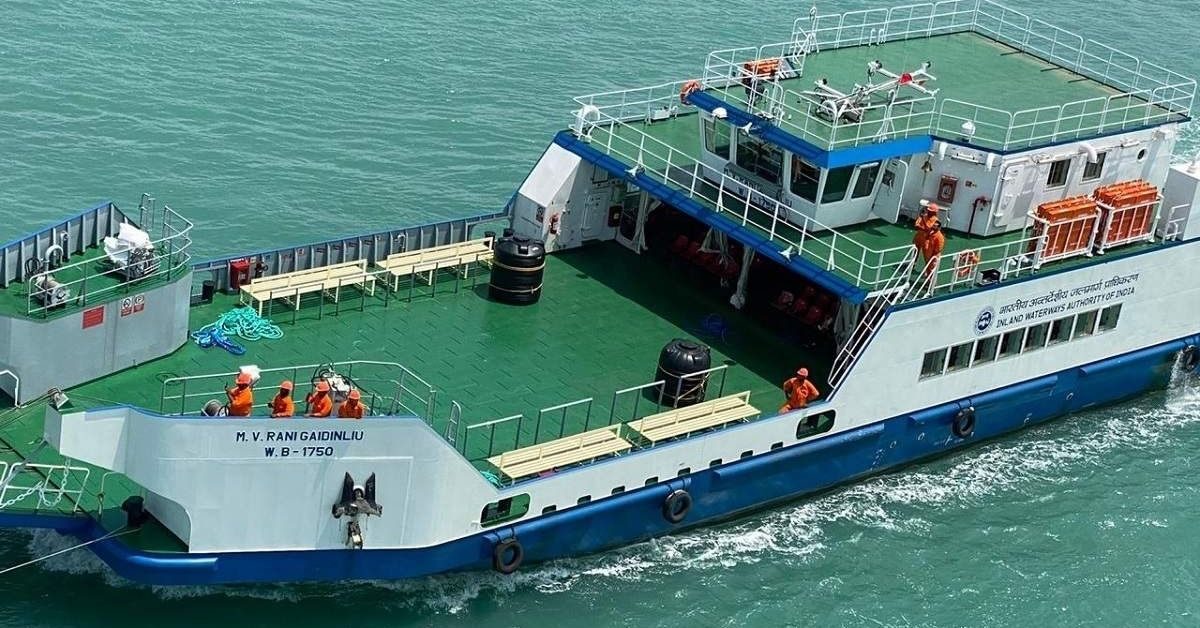The Union Cabinet on June 16, 2021, approved the Inland Vessel Bill 2021 that will streamline and regulate inland vessels running in the country, said Mansukh Mandaviya, Union Minister Ports, Shipping and Waterways. The Inland Vessels Bill 2021 will replace Inland Vessels Act, 1917.
During a press conference, Union Minister Mansukh Mandaviya said that the Inland Vessel Bill, 2021 will promote economical and safe transportation as well as trade through inland waterways.
The Bill will make provisions for safe navigation, protection of cargo, and prevent pollution caused during the use of inland vessels, he added.
What is the Inland Vessel Bill?
•The Inland Vessel Bill, 2021 passed by the Union Cabinet will aid in streamlining and regulating inland vessels running across the inland waterways in the country. The Bill will ensure the safety, security, and registration of inland vessels.
What are the features of the Bill?
•The Inland Vessel Bill, 2021, will act as a unified law for the country in place of separate rules framed by the States.
•The Bill will aid in providing a central database for keeping records of vessel registration, crew, and details of vessels on an electronic portal.
•The Bill will require all non-mechanically propelled vessels to be registered as well at the district, taluk or panchayat, or village level.
•The Bill expands the scope of ‘inland water’ by including national waterways and tidal water limit declared by the Central government.
•The Bill will also create pollution control measures for Inland Vessels. The Bill will aid the Government in creating a list of pollutants detailing substances, chemicals, etc.
Inland Water Transport in India
•As of now, 4,000 km of inland waterways are operational in the country. There is about 14,500 km of navigable waterways including rivers, backwaters, canals, creeks, etc, in the country. 111 waterways have been declared as National Waterways as per the National Waterways Act, 20216.
•The Inland Water Transport (IWT) in the country is a fuel-efficient and environment-friendly mode of moving around 55 million tonnes of cargo. However, the IWT in India is highly underutilized as compared to developed countries.
•The operations of IWT are limited to the deltaic regions of the Godavari-Krishna rivers, inland waters in Mumbai, backwaters in Kerala, rivers in Goa, and a few systems in the Ganga-Bhagirathi-Hooghly rivers, the Barak river, and the Brahmaputra river.
•The Inland Waterways Transport in India can potentially help in easing the load off the congested roadways and overburdened railways.
Inland Waterways Authority of India
•The Inland Waterways Authority of India, based in Noida, Uttar Pradesh, oversees the regulation and development of inland waterways for navigation and shipping. The authority came into being on October 27, 1986.
•The primary task of the authority is to oversee the development and maintenance of the infrastructure of Inland Water Transport (IWT) on national waterways by utilizing grants issued by the Ministry of Shipping.
Union Government also approved the Deep Ocean Mission
•The Union Cabinet, chaired by PM Narendra Modi, on June 16, 2021, also approved the proposal on the Deep Ocean Mission by the Ministry of Earth Sciences The mission aims to explore the deep ocean for developing deep-sea technologies and resources for sustainable use of ocean resources.
•The Deep Ocean Mission will cost Rs 4,077 crore for a period of five years that will be implemented in phases. The first phase from 2021 to 2024 is estimated to cost around Rs 2,823.4 crore.
•Ministry of Earth Sciences will be the nodal ministry for the implementation of the Deep Ocean Mission.
What are the six components of the mission?
The Deep Ocean Mission will support the Blue Economy Initiatives of the government:
•Development of technologies for deep-sea mining and manned submersible,
•Development of ocean climate change advisory services,
•Technological innovations for exploration and conservation of deep-sea biodiversity,
•Deep ocean survey and exploration,
•Off-shore energy and freshwater from the ocean,
•Advanced marine station for ocean biology.
Source : Jagran Josh







